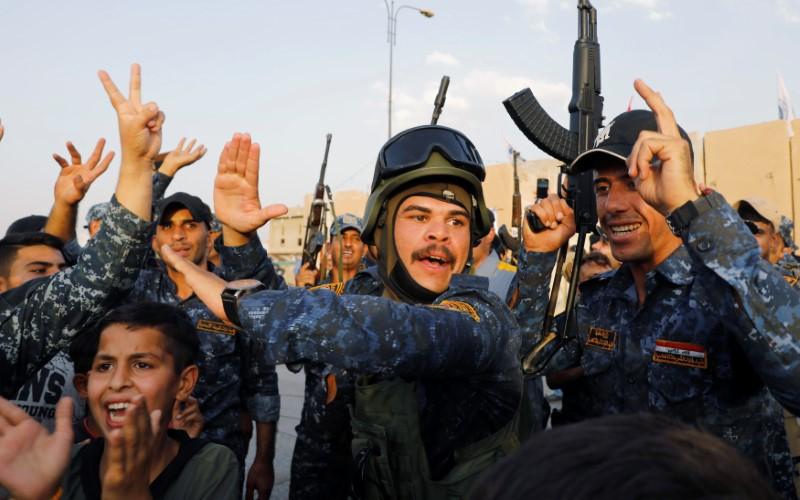MOSUL—ISIS terrorists were battling to hold on to the last few streets under their control in the Old City of Mosul on Monday, in what looked like a hopeless last stand in their former stronghold.
In fierce fighting, Iraqi army units forced the insurgents back, cornering them in a shrinking rectangle no more than 300 meters (yards) wide and 500 meters long by the Tigris river, according to a map published by the military media office.

Members of the Emergency Response Division walk with their weapons during the fight with the ISIS terrorists in the Old City of Mosul, Iraq, July 3, 2017. REUTERS/Ahmed Jadallah





